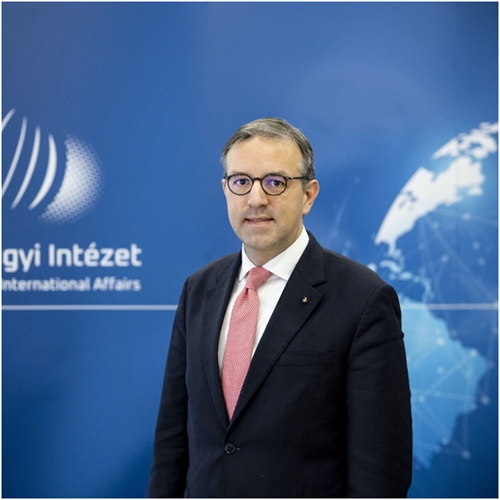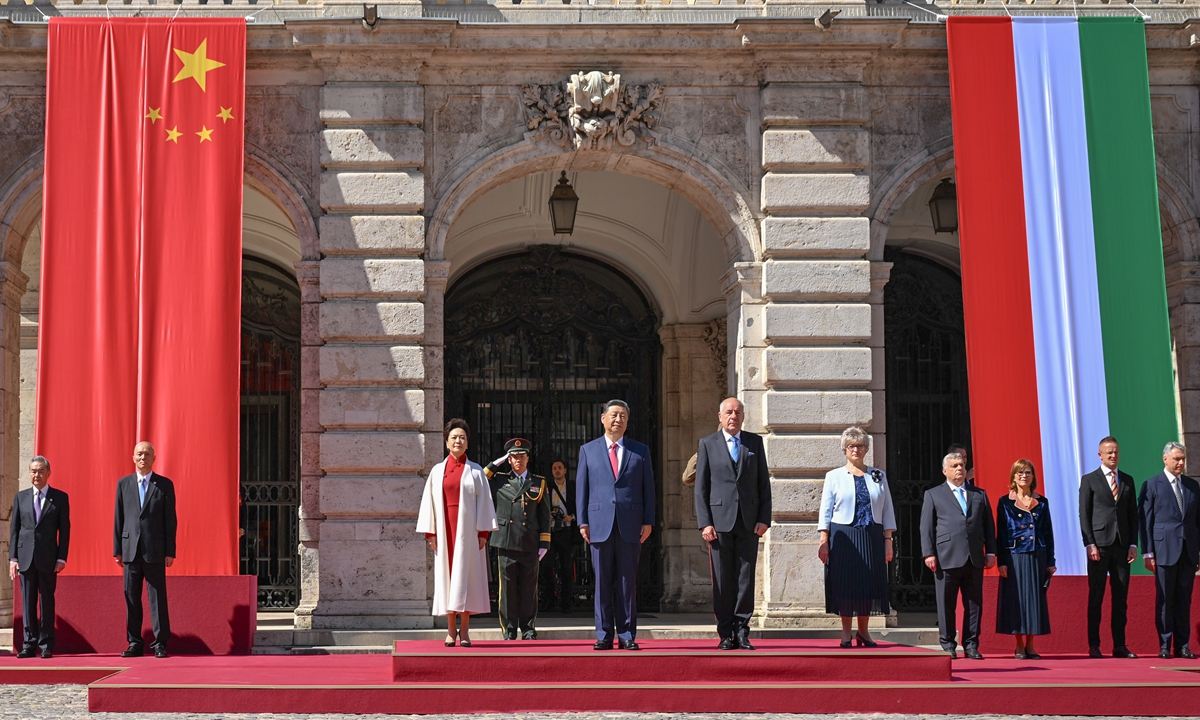Hungary’s strategy of connectivity stands out in today’s increasingly divided world: scholar

Gladden Pappin, President of Hungarian Institute of International Affairs
Hungary-China cooperation will continue to expand in the future, and the visit by Chinese President Xi Jinping to Hungary will help accelerate the development of bilateral relations and EU-China relations, Gladden Pappin, President of Hungarian Institute of International Affairs, told the Global Times in an exclusive interview.
Chinese President Xi is paying state visits to France, Serbia and Hungary from May 5 to 10. The visits are the Chinese president's first trip to Europe in the past nearly five years. Xi's trip is expected to enhance bilateral relations with the three countries and boost their mutually beneficial cooperation.
Amid the shifting international landscape, President Xi's visit to Europe will play a crucial role in restoring normal links between West and East, Pappin told the Global Times.
The visit to Hungary is particularly noteworthy given the strong ties between Budapest and Beijing, which began to deepen with the announcement of Hungary's Eastern Opening in 2010. Hungary and China recognize the importance of connectivity, and in this light Hungary has become a keystone state for connecting West and East, according to the expert.
During meetings in Budapest, the key areas of focus will likely include deepening ties with Hungary and improving relations with the EU. President Xi's visit to Budapest is an indication that Hungary's strategy of connectivity stands out as distinctive and important in today's increasingly divided world, said Pappin.
Since the beginning of this year, leaders and senior officials from several European countries have visited China. Pappin said that European leaders see the importance of good relations with China, even if they are sometimes reluctant to admit it.
Regular trade and exchange also continue despite the rhetoric of "decoupling" and "de-risking" in some European countries. "What is important is for the reality of strong East-West connections to be reflected in high-level interactions, which serve to help the exchanges that occur at the levels of business and the economy generally," said Pappin.
Pappin said that the Hungarian approach to China is part of the country's broader connectivity strategy, which advocates for pursuing mutually beneficial and strong relations with as many countries as possible. Hungary opposes the bloc formation increasingly pursued by some in the West and views these approaches as against its national interests.
"Hungary's viewpoint is born of centuries of experience at the gateway of East and West, and we recognize in particular that Europe stands in need of strong connections with the rest of the world. The European economy has been built on the basis of active connections with the rest of the world, and within that context Hungary has been urging peaceful global cooperation with a special urgency," said Pappin.
Both the Hungary-China and Europe-China relationships have the potential to benefit all parties, which is why Hungary has been working to strengthen both, according to the expert.
China became Hungary's largest source of foreign investment and largest trading partner outside the European Union last year. Hungary signed the memorandum of understanding over China's Belt and Road Initiative in June 2015, becoming the first European country to establish a Belt and Road working group with China.
Pappin also noted that Chinese investments, like the establishment of battery and electrical vehicle factory, are delivering capital and jobs to Hungarian communities. They also help drive economic growth in the country to close the gap between western Europe and central Europe.
Hungary-China cooperation will continue to expand in the future, and the visit by President Xi will help accelerate bilateral cooperation, said Pappin, noting that while Hungary hopes that Europe's approach to China will improve, it will continue to promote strong ties between the two sides.


